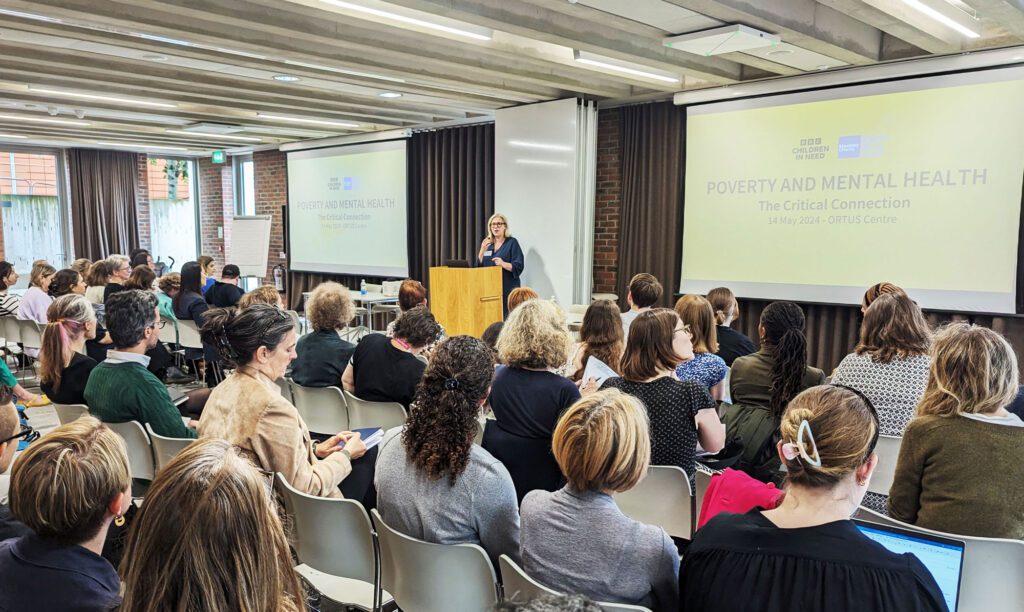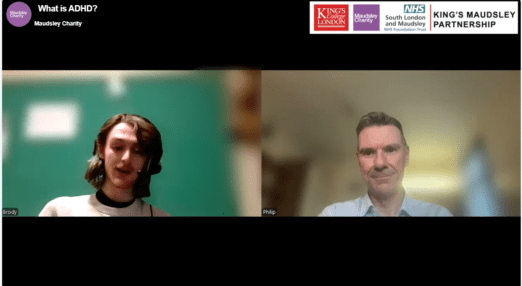The intersection between poverty and mental health
Maudsley Charity recently ran an event, in partnership with Children in Need, looking at the intersection between poverty and mental health.

Rebecca Gray
Chief Executive, Maudsley Charity
We recently ran an event, aimed at the UK funder sector, in partnership with Children in Need. It looked at the intersections between poverty and mental health.

We had an incredible array of speakers, but I was most moved by the powerful stories we heard from members of the Save the Children Parent Panel who talked about the challenges they faced living with poverty and mental illness. The issues they talked about were not just about the challenges of living on very low income, but about the unnecessary obstacles, stigma and sometimes outright hostility they were met with when looking for support for themselves and their families.
Considering the root of the problem
When we started talking to Children in Need, we found we were both thinking about the same issues – the roots of the needs that we are responding to though our programmes. Maudsley Charity is a mental health funder but we can’t have an impact without understanding that deprivation is a driver for mental illness, worsens it and also accounts for much of the inequity in the care received by those experiencing mental illness.
Our specific focus for the next few years is on the lives of adults who experience severe and enduring mental illness and on young people with emerging mental health problems. In each of these areas the link between poverty and mental health is stark – Children in the least well-off 20 percent of households are four times more likely to experience serious mental health difficulties by age 11 compared to those from the wealthiest 20 percent. Looking at data from southeast London where we work, the highest prevalence of psychotic illness maps directly onto neighborhoods of highest deprivation.
Listening to speakers at the event last week we heard so much evidence that poverty and mental illness play into each other at every stage in people’s lives. These are complex issues, and ones that can’t be properly addressed without further recognising intersection with experience of racism and other forms of discrimination and marginalisation.
The issues that need to be addressed to change the situation for people living with poverty and mental illness are huge and systemic. Many of the levers that would have the biggest impact lie only in the hands of the government. With a general election on the horizon (closer now than we might have predicted when planning the conference) I’m hopeful that mental health and poverty, particularly child poverty, will be significant issues in debate across the political spectrum.
Where funding can make an impact
It would be easy to take the view that without fundamental shifts in policy and investment at a governmental level, nothing positive can change. That’s not the case. Funders, whether supporting the VCS, funding innovation in statutory services or investing in research, have an important part to play.
Funders are experimenting with different approaches to meeting need – testing cash payments as an example, commissioning policy development work, some are making a shift to targeting much more narrowly the bulk of their resource in the very highest areas of deprivation. We need to understand impact and value in different ways. A research project we are funding is looking to show the health impact (including potential reduction in admissions) of providing high quality, tailored welfare and financial advice to those experiencing severe mental illness.
The experiences of those who live day to day with the realities of mental ill health and poverty fuel the fire needed for those of us who have the privilege to influence change in any way. They prompt us to keep focused on what matters, to look for new and effective (not always the same thing) ways of responding to age-old and worsening problems and to be optimistic about potential for change.
Funding work that responds to complexity, that works cross sector not within existing boundaries, that is flexible, and that supports people to experiment and think differently must be our role.
Further reading
-

A closer look at ADHD
Brody Barclay, a student at the University of Central Lancashire and Youth Panel Member for RE-STAR (a neurodiversity research programme at King’s College London) interviewed Philip Shaw, Director...
-

Understanding ADHD
To mark Children’s Mental Health Week, Brody Barclay, 18, shares his experience of living with ADHD and autism and taking part in research.

